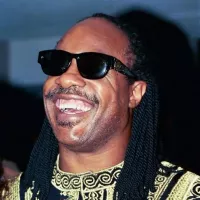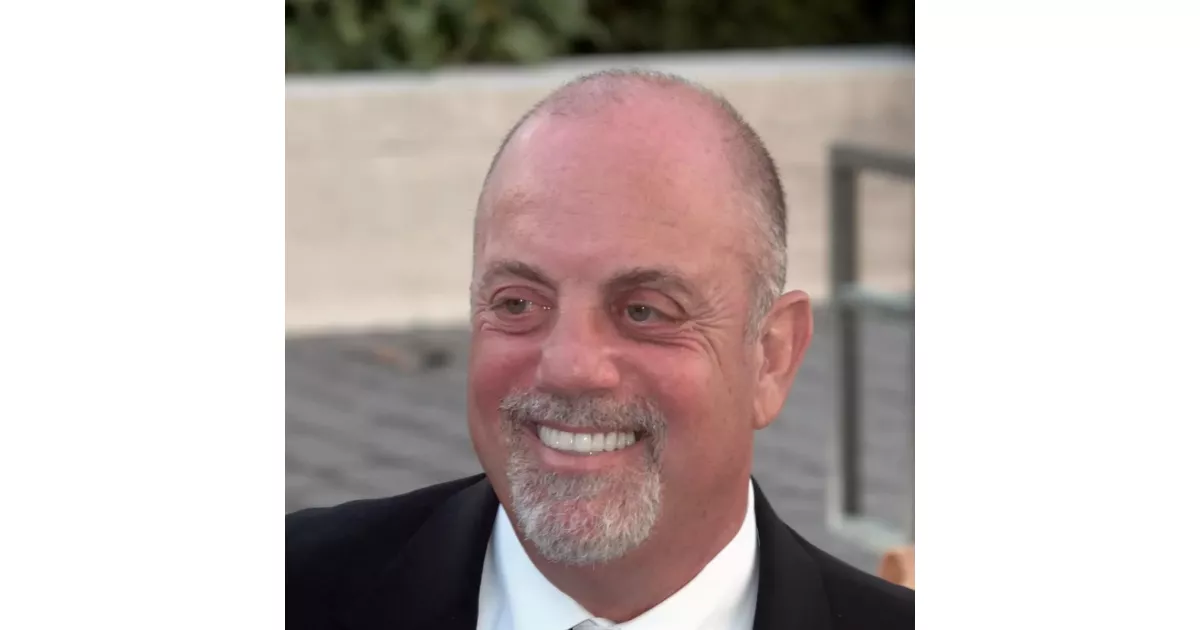William Martin Joel, known as Billy Joel, is a highly successful American singer-songwriter and pianist, achieving fame as a solo artist in the 1970s. His signature song, "Piano Man," gave him his nickname. He released 12 studio albums between 1971 and 1993, primarily in the pop and rock genres, and a classical album in 2001. With over 160 million records sold globally, he is among the best-selling music artists worldwide and the fourth-best-selling solo artist in the U.S. His 1985 "Greatest Hits Vol. I & II" is a top-selling album in the United States.
1977: Success of The Stranger
In 1977, Billy Joel's "The Stranger" became a smash album and introduced many fans to his earlier compositions.
1977: Release of Video Album and video for "Piano Man"
In 1977, coinciding with the "Greatest Hits" album release, Billy Joel released a two-volume Video Album and recorded a video for his first hit, "Piano Man".
1978: Release of 52nd Street
In 1978, Billy Joel released "52nd Street", named after Manhattan's 52nd Street, which housed the headquarters of CBS/Columbia. The album, featuring hits like "My Life", "Big Shot", and "Honesty", reached number one and sold over seven million copies. It also won Grammy Awards for Best Pop Vocal Performance, Male and Album of the Year.
1979: Performance at Havana Jam festival
In 1979, Billy Joel participated in the historic Havana Jam festival in Havana, Cuba, alongside various artists. His performance was documented in Ernesto Juan Castellanos's film "Havana Jam '79".
May 1980: "You May Be Right" hits No. 7
In May 1980, Billy Joel's song "You May Be Right" reached No. 7 on the Billboard chart.
July 1980: Recording live performances for "Songs in the Attic"
In July 1980, Billy Joel recorded live performances at US arenas and nightclub shows for his album "Songs in the Attic", featuring lesser-known songs from his early career.
July 1980: "It's Still Rock and Roll to Me" hits No. 1
In July 1980, Billy Joel's song "It's Still Rock and Roll to Me" reached No. 1 on the Billboard chart, becoming his first number-one single.
September 1980: "Don't Ask Me Why" hits No. 19
In September 1980, Billy Joel's song "Don't Ask Me Why" reached No. 19 on the Billboard chart.
November 1980: "Sometimes a Fantasy" hits No. 36
In November 1980, Billy Joel's song "Sometimes a Fantasy" reached No. 36 on the Billboard chart.
1981: Production of "The Nylon Curtain" begins
In the fall of 1981, Billy Joel began production of "The Nylon Curtain", aiming for a sonic masterpiece and more ambitious songwriting.
April 15, 1982: Motorcycle accident
On April 15, 1982, Billy Joel was involved in a serious motorcycle accident on Long Island, severely injuring his hands, which temporarily delayed the production of "The Nylon Curtain."
December 29, 1982: Filming "Live from Long Island"
On December 29, 1982, Billy Joel filmed his first video special, "Live from Long Island", at the Nassau Veterans Memorial Coliseum in Uniondale, New York.
1982: First commercially released album on compact disc
In 1982, Billy Joel's album "52nd Street" became the first commercially released album on the then-new compact disc format.
1983: "And So It Goes" Written
Around 1983, Billy Joel originally wrote the song "And So It Goes" while writing songs for An Innocent Man, but it was held back until Storm Front.
1983: Release of "An Innocent Man"
In 1983, Billy Joel released "An Innocent Man", which paid tribute to R&B and doo-wop music. The album included "Tell Her About It", which became his second Billboard number-one hit.
1983: "Live from Long Island" broadcast on HBO
In 1983, Billy Joel's video special, "Live from Long Island", was originally broadcast on HBO.
1984: Release of title song and "The Longest Time" as singles
In 1984, the title song from "An Innocent Man" was released as a single and it peaked at No. 10 in the U.S. Also in March, "The Longest Time" was released as a single, peaking at No. 14 on the Hot 100 and No. 1 on the Adult Contemporary chart.
January 1985: "Keeping the Faith" peaks at No. 18
In January 1985, the song "Keeping the Faith" by Billy Joel peaked at No. 18 on the charts.
1985: Participation in "We Are the World" project and release of Greatest Hits Vol. 1 and 2
In 1985, Billy Joel participated in the USA for Africa "We Are the World" project. He also released "Greatest Hits Vol. 1 and 2", which included new songs "You're Only Human (Second Wind)" and "The Night Is Still Young".
1985: Relationship with Christie Brinkley begins
In 1985, Christie Brinkley starred in the music video for Billy Joel's "Uptown Girl", which sparked a relationship between the two. They later married.
October 1986: Planning trip to Soviet Union
In October 1986, Billy Joel and his team began planning a trip to the Soviet Union for live performances.
November 18, 1986: "Big Man on Mulberry Street" featured on Moonlighting
On November 18, 1986, an extended version of "Big Man on Mulberry Street" was used on an episode of the TV show Moonlighting.
1986: Release of The Bridge
In 1986, Billy Joel released "The Bridge", which included the hits "A Matter of Trust" and "Modern Woman".
1986: The Bridge Album Release
In 1986, Billy Joel released 'The Bridge' album, including the song "Baby Grand".
1986: Phil Ramone's Collaboration End
In 1986, Billy Joel's professional collaboration with Phil Ramone as his studio album producer concluded. Ramone had produced all of Joel's studio albums from 1977 to 1986.
July 1987: Touring the Soviet Union
In July 1987, Billy Joel, his family, and his band toured the Soviet Union, with concerts being simulcast on radio around the world, marking the first live rock radio broadcast in Soviet history.
October 1987: Release of the album КОНЦЕРТ
In October 1987, Billy Joel released the live album КОНЦЕРТ (Russian for "Concert"), featuring performances from his tour in the Soviet Union. The album included covers of The Beatles' "Back in the U.S.S.R." and Bob Dylan's "The Times They Are a-Changin".
1987: "Leningrad" Inspiration
In 1987, during his tour, Billy Joel met a clown in the Soviet city of Leningrad, inspiring him to write the song "Leningrad".
1988: Recording of Storm Front begins
In 1988, Billy Joel commenced the recording of Storm Front, coinciding with major changes in his career.
1988: Joel plays the piano on Jones's single "Just Wanna Hold"
In 1988, Billy Joel is credited as one of the keyboard players on Mick Jones's solo album, and is featured in the official video for Jones's single "Just Wanna Hold".
1988: Voice acting role in Oliver & Company
In 1988, Billy Joel voiced Dodger, a character in the animated film "Oliver & Company", and sang the character's song "Why Should I Worry?".
August 1989: Dismissal of manager Frank Weber
In August 1989, Billy Joel dismissed his manager, Frank Weber, after discovering accounting discrepancies.
September 1989: Release of "We Didn't Start the Fire"
In September 1989, Billy Joel released "We Didn't Start the Fire", which became his third US number-one hit.
1989: Shameless Release
In 1989 Billy Joel released the album containing the song 'Shameless'.
January 1990: Awarded partial judgment against Frank Weber
In January 1990, Billy Joel was awarded US$2 million in a partial judgment against his former manager, Frank Weber, after suing him for fraud.
1990: Storm Front Success
In 1990, "I Go to Extremes", the second single from the album Storm Front, reached No. 6. Also, the ballad "And So It Goes" reached No. 37 in late 1990.
1991: Garth Brooks covers Shameless
In 1991, Garth Brooks reached No. 1 on Billboard's country charts with his recording of the song "Shameless" from Billy Joel's 1989 album.
1992: Induction into the Rock & Roll Hall of Fame
In 1992, Billy Joel inducted the R&B duo Sam & Dave into the Rock & Roll Hall of Fame. That year, Joel also started work on River of Dreams.
1992: Lawsuit Filed Against Allen Grubman
In the summer of 1992, Billy Joel filed a US$90 million lawsuit against his former lawyer Allen Grubman, alleging fraud, breach of fiduciary responsibility, malpractice, and breach of contract.
1993: Last Pop/Rock Song released before Christmas in Fallujah
Billy Joel mentions in 2007 that it has been since 1993's release of River of Dreams when he released a pop/rock song.
1993: River of Dreams Album
In early 1993, Billy Joel finished the album River of Dreams, which included the hit singles "All About Soul" and "Lullabye (Goodnight, My Angel)". The first single reached No. 3 on Billboard's Hot 100 and ranking at No. 21 on the 1993 year-end chart.
1993: Lawsuit Settled
In the fall of 1993, Billy Joel's lawsuit against Allen Grubman was settled out of court for US$3 million, paid by Sony America to protect Sony Music's interests.
April 13, 1994: Separation Announced
On April 13, 1994, Billy Joel and Christie Brinkley announced their separation.
August 1994: Divorce Finalized
In August 1994, Billy Joel and Christie Brinkley's divorce was finalized.
1994: Face to Face Tours Begin
Beginning in 1994, Billy Joel and Elton John began touring extensively together on a series of "Face to Face" tours.
1996: Masterclass Session in Pittsburgh
During a Masterclass session in Pittsburgh in 1996, Billy Joel described Storm Front as a turbulent album and portrayed "And So It Goes" as the calm after a violent thunderstorm.
1997: Central Park Concert with Garth Brooks
During his Central Park concert in 1997, Billy Joel performed with Garth Brooks.
1999: Induction into Rock 'n Roll Hall of Fame
In 1999, Billy Joel was inducted into the Rock 'n Roll Hall of Fame. Ray Charles made the induction speech.
December 31, 1999: Millennium Concert
On December 31, 1999, Billy Joel performed "2000 Years" at his millennium concert at Madison Square Garden.
2000: Release of 2000 Years: The Millennium Concert
In 2000, Billy Joel's concert from December 31, 1999, was released as "2000 Years: The Millennium Concert".
September 21, 2001: America: A Tribute to Heroes
On September 21, 2001, Billy Joel performed "New York State of Mind" live as part of the America: A Tribute to Heroes benefit concert.
October 20, 2001: Concert for New York City
On October 20, 2001, Billy Joel performed "Miami 2017 (Seen the Lights Go Out on Broadway)" and "Your Song" with Elton John at the Concert for New York City in Madison Square Garden.
2001: The Essential Billy Joel release
In 2001, the compilation album 'The Essential Billy Joel' was released, which contained a radio remix version of "All About Soul".
2003: Face to Face Tour Success
In 2003, Billy Joel and Elton John's "Face to Face" tour grossed over US$46 million in just 24 dates.
2003: Induction of The Righteous Brothers
In 2003, Billy Joel inducted The Righteous Brothers into the Rock and Roll Hall of Fame and noted that his song "Until the Night" from the album 52nd Street was a tribute to the duo.
2005: My Lives Album Release
In 2005, Billy Joel's album 'My Lives' was released, which contained a demo version of the song "All About Soul".
2005: Release of My Lives Box Set
In 2005, Columbia released the box set My Lives, a compilation of demos, b-sides, live/alternative versions, and top 40 hits. It also included software to remix "Zanzibar" and a DVD from the River of Dreams tour.
January 7, 2006: U.S. Tour Begins
On January 7, 2006, Billy Joel began a tour across the U.S., featuring songs from throughout his career. His tour included 12 sold-out concerts at Madison Square Garden, breaking a record previously set by Bruce Springsteen.
June 13, 2006: Release of 12 Gardens Live
On June 13, 2006, Columbia released 12 Gardens Live, a double album containing live recordings from the 12 different shows at Madison Square Garden during Billy Joel's 2006 tour.
July 31, 2006: Free Concert in Rome
On July 31, 2006, Billy Joel performed a free concert in Rome, Italy, with the Colosseum as the backdrop, as part of the European leg of his 2006 tour.
2006: "The Great Wall of China" on Tour
In 2006, Billy Joel's song "The Great Wall of China" was a regular part of the setlist for his tour.
February 27, 2007: Release of "All My Life" Single
On February 27, 2007, Billy Joel's newest single, "All My Life", was released, with a live version of "You're My Home" from the Madison Square Garden 2006 tour as the second track.
March 2007: Tour of the Southeastern U.S.
In February and March 2007, Billy Joel toured the Southeastern U.S. before hitting the Midwest in the spring.
2007: Cass Dillon sings "Christmas in Fallujah"
In 2007 Cass Dillon sings "Christmas in Fallujah" in the studio recording.
January 26, 2008: Performance with Philadelphia Orchestra
On January 26, 2008, Billy Joel performed with the Philadelphia Orchestra celebrating the 151st anniversary of the Academy of Music. He performed his classical piece "Waltz No. 2 (Steinway Hall)" and rarely performed Nylon Curtain songs.
March 10, 2008: Induction of John Mellencamp
On March 10, 2008, Billy Joel inducted his friend John Mellencamp into the Rock and Roll Hall of Fame.
June 19, 2008: Concert at Caesars Windsor Re-Opening
On June 19, 2008, Billy Joel played a concert at the grand re-opening of Caesars Windsor in Windsor, Ontario, Canada.
July 2008: Sold-out Concerts at Mohegan Sun Casino
From May to July 2008, Billy Joel sold out 10 concerts at the Mohegan Sun Casino in Uncasville, Connecticut, and was honored with a banner displaying his name and the number 10.
2008: Joel expresses dislike for The Bridge album
In 2008, Billy Joel stated in an interview that he does not think "The Bridge" is a good album.
2008: Final Concerts at Shea Stadium
On July 16 and 18, 2008, Billy Joel played the final concerts at Shea Stadium before its demolition. His guests included many famous musicians.
March 2009: Face to Face Tour Resumes
In March 2009, Billy Joel and Elton John resumed their "Face to Face" tour.
May 19, 2009: Liberty DeVitto Files Lawsuit
On May 19, 2009, Billy Joel's former drummer, Liberty DeVitto, filed a lawsuit claiming Joel and Sony Music owed him over 10 years of royalty payments.
February 2010: Rumors of Tour Cancellation Denied
In February 2010, Billy Joel denied rumors that he canceled a summer 2010 leg of the "Face to Face" tour with Elton John, stating there were never any dates booked.
March 2010: Face to Face Tour Ends
In March 2010, Billy Joel and Elton John's "Face to Face" tour ended in Albany, New York, at the Times Union Center.
April 2010: Lawsuit Resolved Amicably
In April 2010, Billy Joel and Liberty DeVitto amicably resolved the lawsuit.
2010: Last Play at Shea Documentary Film
The 2008 concerts at Shea Stadium by Billy Joel were featured in the 2010 documentary film Last Play at Shea.
February 8, 2011: Last Play at Shea DVD release
On February 8, 2011, the film 'Last Play at Shea' was released on DVD.
March 8, 2011: Live at Shea Stadium Release
On March 8, 2011, the CD and DVD of Billy Joel's show, Live at Shea Stadium, were released.
November 2011: Piano Man Re-Release
In November 2011, Piano Man was re-released in a two-disc Legacy edition to commemorate the 40th anniversary of Billy Joel's debut album, Cold Spring Harbor.
2012: Publishing Agreement with UMPG
In 2012, Billy Joel signed an exclusive worldwide publishing agreement with Universal Music Publishing Group (UMPG).
December 29, 2013: Kennedy Center Honors
On December 29, 2013, Billy Joel received Kennedy Center Honors in Washington, D.C., the nation's highest honor for influencing American culture through the arts.
July 22, 2014: Gershwin Prize for Popular Song
On July 22, 2014, the Library of Congress announced that Billy Joel would be the sixth recipient of the Gershwin Prize for Popular Song.
November 2014: Receiving the Gershwin Prize
In November 2014, Billy Joel received the Gershwin Prize for Popular Song at a performance ceremony from James H. Billington, the Librarian of Congress, and Supreme Court Justice Sonia Sotomayor.
July 18, 2018: Billy Joel Day in New York
On July 18, 2018, Governor Andrew Cuomo proclaimed the date to be Billy Joel Day in New York state to mark Billy Joel's 100th performance at Madison Square Garden.
2022: "Vienna" becomes one of Joel's most streamed songs
As of 2022, "Vienna" has become one of Billy Joel's most streamed songs on the internet.
October 19, 2023: "Billy Joel Way" Renaming
On October 19, 2023, a portion of Audrey Avenue in Billy Joel's hometown of Oyster Bay was renamed "Billy Joel Way" in honor of the musician.
April 14, 2024: CBS Feature of Billy Joel
On April 14, 2024, Billy Joel was featured on CBS in commemoration of his 100th performance at Madison Square Garden.
2024: Billy Joel Night on The Masked Singer
In 2024, Billy Joel was honored in "Group C Premiere: Billy Joel Night," on The Masked Singer Season 11, where the contestants sang songs by Joel.
Mentioned in this timeline

Donald John Trump is an American politician media personality and...

Sir Elton John is a highly successful British singer songwriter...
Home Box Office HBO is an American pay television service...

Barack Obama the th U S President - was the...

Hillary Diane Rodham Clinton is a prominent American politician lawyer...

Stevie Wonder born Stevland Hardaway Morris is a highly influential...
Trending
60 minutes ago Samsung Galaxy S26 Series Unveiled: Intuitive AI Phone with Snapdragon 8 Elite Gen 5.
59 minutes ago Lesotho: Frontliners help family overcome poverty; South Africa sees tourism boom in 2026.

59 minutes ago Sara Eisen on The View: Tense Moments and Financial Expertise Displayed.

2 hours ago Ryan Hurst's Kratos Revealed in Prime Video's 'God of War' Series: Cast Updates

2 hours ago Cowboys to Franchise Tag George Pickens for $28 Million: A Bold Move

2 hours ago Rublev dominates Rinderknech, secures Dubai 2026 SFs spot; stats rival Djokovic, Federer.
Popular

Jesse Jackson is an American civil rights activist politician and...

Barack Obama the th U S President - was the...

Susan Rice is an American diplomat and public official prominent...

XXXTentacion born Jahseh Dwayne Ricardo Onfroy was a controversial yet...

Michael Joseph Jackson the King of Pop was a highly...

Kashyap Pramod Patel is an American lawyer who became the...
